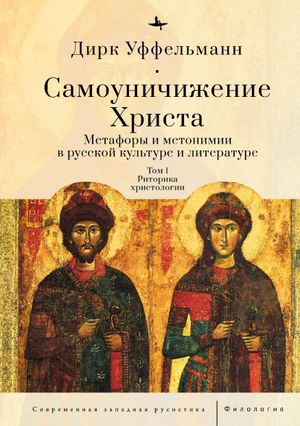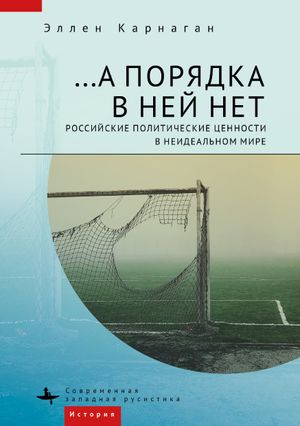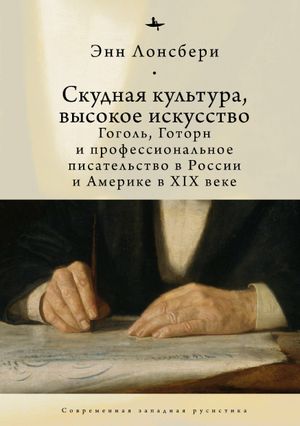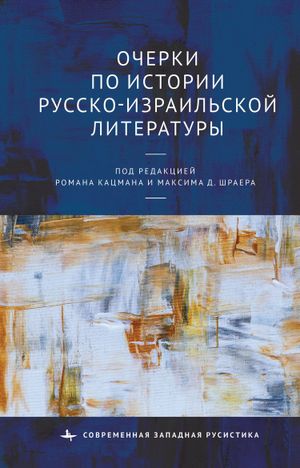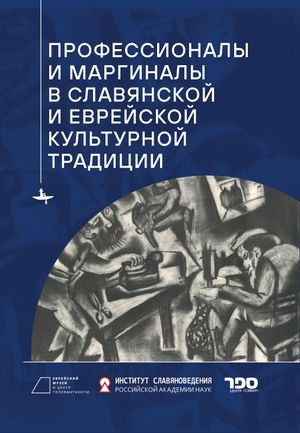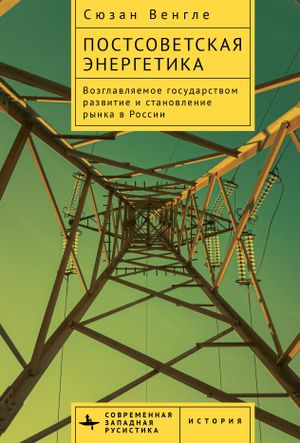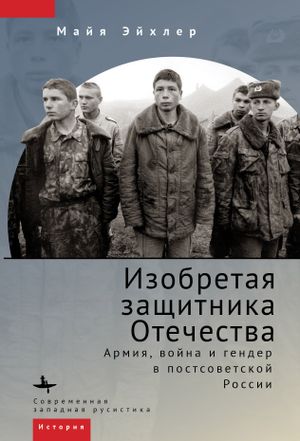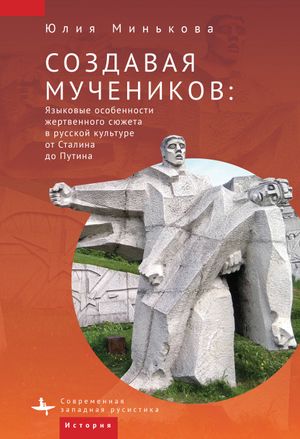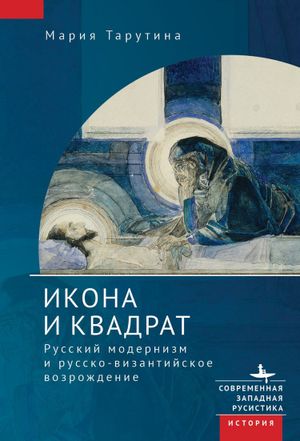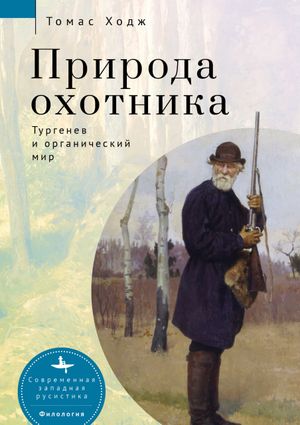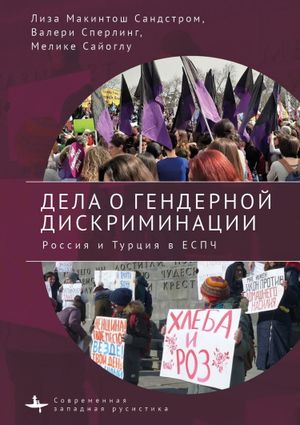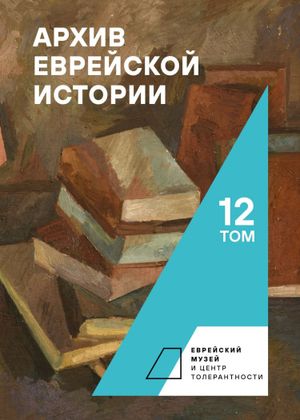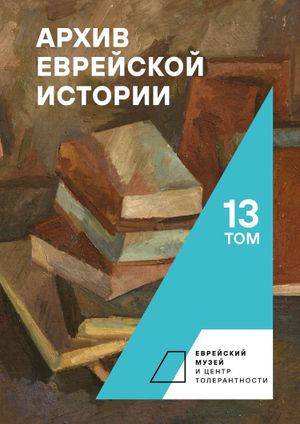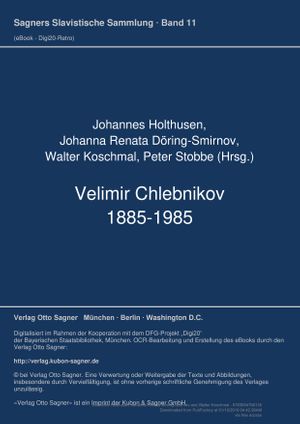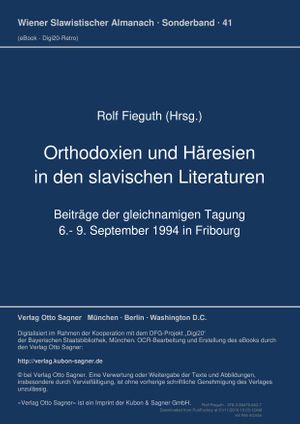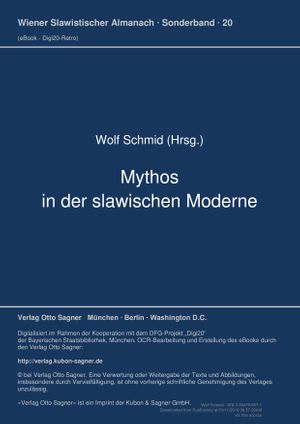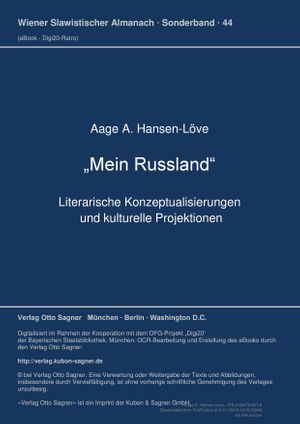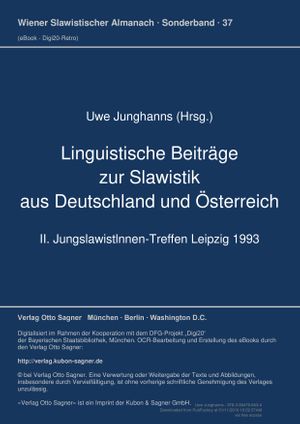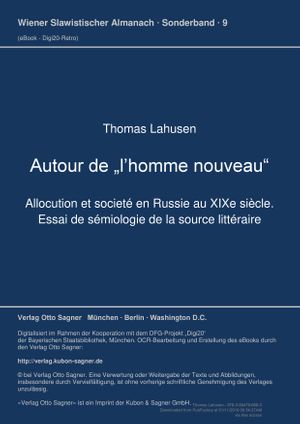Самоуничижение Христа: Метафоры и метонимии в русской культуре и литературе
Russian-language edition: This three-volume book investigates the Russian transformations of one of the central concepts of Greek Christology, the self-humiliation or kenosis of Christ. The author applies rhetoric (paradox, metaphor, metonymy) as a means to elucidate mechanisms of theological persuasion and to trace the representations of the humiliated Christ and his imitations in various media from liturgy and iconology to everyday practice and literary fiction. The exploration of post-Christian literature of the 19th and 20th century (N. Chernyshevskii, M. Gor’kii, N. Ostrovskii, Ven. Erofeev, Vl. Sorokin) demonstrates the existence of a kenotic Christology after Christianity.
А порядка в ней нет: Российские политические ценности в неидеальном мире
Russian-language edition: One common explanation for the failure of democracy to take root in Russia more quickly and more thoroughly than it has points to inherited cultural values that predispose Russian citizens to favor an autocratic type of governance. Ellen Carnaghan takes aim at this cultural-determinist thesis in her study of Russian attitudes, based on intensive interviews with more than sixty citizens from all walks of life and a variety of political orientations. What she finds is that, rather than being influenced by an antidemocratic and anticapitalist ideology, these ordinary citizens view the economic and political system in Russia today very critically because it simply does not function well for them in meeting their everyday needs. They long for order not because they eschew democracy and free markets in any fundamental way, but because they experience them currently as chaotic and unpredictable, leading to constant frustration. As a result, there is reason to be optimistic about further progress in democratization: it depends on improving the functioning of existing institutions, not transforming deep-rooted cultural norms. In the Conclusion, Carnaghan applies her argument to elucidating the reasons why Russians have responded favorably to what Westerners see as moves in an antidemocratic direction by Vladimir Putin’s government.
Thin Culture, High Art: Gogol, Hawthorne, and Authorship in Nineteenth-Century Russia and America
Russian-language edition: In Russia and America a perceived absence of literature gave rise to grandiose notions of literature’s importance. This book examines how two traditions worked to refigure cultural lack, not by disputing it but by insisting on it, by representing the nation’s (putative) cultural deficit as a moral and aesthetic advantage. Through a comparative study of Gogol and Hawthorne, this book examines parallels that seem particularly striking when we consider that these traditions had virtually no points of contact. Yet the unexpected parallels between these authors are the result of historical similarities: Russians and Americans felt obliged to develop a manifestly national literature ex nihilo, and to do so in an age when an unprecedented diversity of printed texts were circulating among an ever more heterogeneous reading public. Responding to these conditions, Gogol and Hawthorne articulated ideas that would prove influential for their nations’ literary development: that is, despite the culture’s thinness and deviation from European norms, it would soon produce works that would surpass European literature in significance.
Studies in the History of Russian-Israeli Literature
This collection of essays covers a hundred-year history of Russian-language literature in Israel, including the pre-state period. Some of the studies are devoted to an overview of the literary process and the activities of its participants, others—to individual genres and movements. As a result, a complex and multifaceted picture emerges of a not quite fully defined, but very lively and dynamic community that develops in the most difficult conditions. The contributors trace the paths of Russian-Israeli prose, poetry and drama, various waves of avant-garde, fantasy, and critical thought. Today, in Russian-Israeli literature, the voices of writers of various generations and waves of repatriation are intertwined: from the “seventies” to the “war aliyah” of the recent times. Both the Russian-Israeli authors and their critics often hold different opinions of their respective roles in Israel’s historical and literary storms. While disagreeing on the definition of their place on the map of modern culture, Russian-Israeli writers are united by a shared bond with the fate of the Jewish state.
Professionals and Marginals in Slavic and Jewish Cultural Traditions
Professionals and Marginals in Slavic and Jewish Cultural Traditions is the annual publication of the Slavic & Jewish Cultures: Dialogue, Similarities, Differences’s project for 2022. It includes papers from the international conference of the same name held in Moscow on December 1–3, 2021. The book includes twelve articles by Russian and Israeli scholars who work on the social and cultural role of professionals and marginals in various ethno-confessional traditions. The question of the perception of professionals in culture falls under the opposition “one’s own/another’s,” where belonging to “one’s own” or a “foreign community or class” becomes a defining marker. Traditionally, “social strangers,” to which representatives of various professions belong, were assigned a special role in calendar, magical, and occasional rites. Thus, professionals and social marginals were not considered outcasts: society assigned them a particular place and role, delegating special cultural functions to them. Like previous publications in this series, Professionals and Marginals in Slavic and Jewish Cultural Traditions is notable for the large amount of field and archival material that it makes publically available for the first time.
Post-Soviet Power: State-Led Development and Russia’s Marketization
Post-Soviet Power tells the story of the Russian electricity system and examines the politics of its transformation from a ministry to a market. Susanne A. Wengle shifts our focus away from what has been at the center of post-Soviet political economy – corruption and the lack of structural reforms – to draw attention to political struggles to establish a state with the ability to govern the economy. She highlights the importance of hands-on economic planning by authorities – post-Soviet developmentalism – and details the market mechanisms that have been created. This book argues that these observations urge us to think of economies and political authority as mutually constitutive, in Russia and beyond. Whereas political science often thinks of market arrangements resulting from political institutions, Russia’s marketization demonstrates that political status is also produced by the market arrangements that actors create. Taking this reflexivity seriously suggests a view of economies and markets as constructed and contingent entities.
Militarizing Men: Gender, Conscription, and War in Post-Soviet Russia
A state’s ability to maintain mandatory conscription and wage war rests on the idea that a “real man” is one who has served in the military. Yet masculinity has no inherent ties to militarism. The link between men and the military, argues Maya Eichler, must be produced and reproduced in order to fill the ranks, engage in combat, and mobilize the population behind war. In the context of Russia’s post-communist transition and the Chechen wars, men’s militarization has been challenged and reinforced. Eichler uncovers the challenges by exploring widespread draft evasion and desertion, anti-draft and anti-war activism led by soldiers’ mothers, and the general lack of popular support for the Chechen wars. However, the book also identifies channels through which militarized gender identities have been reproduced. Eichler’s empirical and theoretical study of masculinities in international relations applies for the first time the concept of “militarized masculinity,” developed by feminist IR scholars, to the case of Russia.
Making Martyrs: The Language of Sacrifice in Russian Culture from Stalin to Putin
In Making Martyrs: The Language of Sacrifice in Russian Culture from Stalin to Putin, Yuliya Minkova examines the language of canonization and vilification in Soviet and post-Soviet media, official literature, and popular culture. She argues that early Soviet narratives constructed stories of national heroes and villains alike as examples of uncovering a person’s “true self.” The official culture used such stories to encourage heroic self-fashioningamong Soviet youth and as a means of self-policing and censure. Later Soviet narratives maintained this sacrificial imagery in order to assert the continued hold of Soviet ideology on society, while post-Soviet discourses of victimhood appeal to nationalist nostalgia. Sacrificial mythology continues to maintain a persistent hold in contemporary culture, as evidenced most recently by the Russian intelligentsia’s fascination with the former oligarch Mikhail Khodorkovsky, the Russian media coverage of the war in Ukraine, laws against US adoption of Russian children and against the alleged propaganda of homosexuality aimed at minors, renewed national pride in wartime heroes, and the current usage of the words “sacred victim” in public discourse. In examining these various cases, the book traces the trajectory of sacrificial language from individual identity construction to its later function of lending personality and authority to the Soviet and post-Soviet state.
The Icon and the Square: Russian Modernism and the Russo-Byzantine Revival
In The Icon and the Square, Maria Taroutina examines how the traditional interests of institutions such as the crown, the church, and the Imperial Academy of Arts temporarily aligned with the radical, leftist, and revolutionary avant-garde at the turn of the twentieth century through a shared interest in the Byzantine past, offering a counternarrative to prevailing notions of Russian modernism.Focusing on the works of four different artists—Mikhail Vrubel, Vasily Kandinsky, Kazimir Malevich, and Vladimir Tatlin—Taroutina shows how engagement with medieval pictorial traditions drove each artist to transform his own practice, pushing beyond the established boundaries of his respective artistic and intellectual milieu. She also contextualizes and complements her study of the work of these artists with an examination of the activities of a number of important cultural associations and institutions over the course of several decades. As a result, The Icon and the Square gives a more complete picture of Russian modernism: one that attends to the dialogue between generations of artists, curators, collectors, critics, and theorists.The Icon and the Square retrieves a neglected but vital history that was deliberately suppressed by the atheist Soviet regime and subsequently ignored in favor of the secular formalism of mainstream modernist criticism. Taroutina’s timely study, which coincides with the centennial reassessments of Russian and Soviet modernism, is sure to invigorate conversation among scholars of art history, modernism, and Russian culture.
Hunting Nature: Ivan Turgenev and the Organic World
In Hunting Nature, Thomas P. Hodge explores Ivan Turgenev’s relationship to nature through his conception, description, and practice of hunting—the most unquenchable passion of his life. Informed by an ecocritical perspective, Hodge takes an approach that is equal parts interpretive and documentarian, grounding his observations thoroughly in Russian cultural and linguistic context and a wide range of Turgenev’s fiction, poetry, correspondence, and other writings. Included within the book are some of Turgenev’s important writings on nature—never previously translated into English. Turgenev, who is traditionally identified as a chronicler of Russia’s ideological struggles, is presented in Hunting Nature as an expert naturalist whose intimate knowledge of flora and fauna deeply informed his view of philosophy, politics, and the role of literature in society. Ultimately, Hodge argues that we stand to learn a great deal about Turgenev’s thought and complex literary technique when we read him in both cultural and environmental contexts. Hodge details how Turgenev remains mindful of the way textual detail is wedded to the organic world—the priroda that he observed, and ached for, more keenly than perhaps any other Russian writer.
Courting Gender Justice: Russia, Turkey, and the European Court of Human Rights
Women and the LGBT community in Russia and Turkey face pervasive discrimination. Only a small percentage dare to challenge their mistreatment in court. Facing domestic police and judges who often refuse to recognize discrimination, a small minority of activists have exhausted their domestic appeals and then turned to their last hope: the European Court of Human Rights (ECtHR). The ECtHR, located in Strasbourg, France, is widely regarded as the most effective international human rights court in existence. Russian citizens whose rights have been violated at home have brought tens of thousands of cases to the ECtHR over the past two decades. But only one of these cases resulted in a finding of gender discrimination by the ECtHR-and that case was brought by a man. By comparison, the Court has found gender discrimination more frequently in decisions on Turkish cases. Courting Gender Justice explores the obstacles that confront citizens, activists, and lawyers who try to bring gender discrimination cases to court. To shed light on the factors that make rare victories possible in discrimination cases, the book draws comparisons among forms of discrimination faced by women and LGBT people in Russia and Turkey. Based on interviews with human rights and feminist activists and lawyers in Russia and Turkey, this engaging book grounds the law in the personal experiences of individual people fighting to defend their rights.
Archive of Jewish History: Volume 12
12-й том «Архива» открывается исследованием Ефима Меламеда (Киев) об истории надзора сталинских спецслужб за еврейскими писателями в конце 1930-х — начале 1950-х годов, имевшего последствиями репрессии и физическое уничтожение многих из них. В приложении к его статье публикуется уникальный материал — донесения тайного агента, «освещавшего» деятельность «братьев-писателей». Григорий Кан (Москва) вносит очередную лепту в изучение «вечной» темы: евреи
Archive of Jewish History: Volume 13
В 13-й том «Архива еврейской истории» вошли избранные главы из воспоминаний выдающегося юриста начала ХХ века Бориса Гершуна, «простого человека» Анны Шойхет, «автобиография» которой охватывает первую половину прошлого века, воспоминания Геннадия и Елены Эстрайх об их попытках эмигрировать из СССР, начиная с конца 1970-х. Попытки завершились успехом уже в начале 1990-х. В раздел «исследования» вошли статьи об одном из малоизвестных членов знаменитого клана баронов Гинцбургов — Альфреде, сыне Горация и о народовольце Савелии Златопольском. Альфред Гинцбург был управляющим Ленскими золотыми приисками и внес существенный вклад в развитие российской золотодобывающей промышленности. И, разумеется, в благосостояние семейства. Статья о члене Исполнительного комитета «Народной воли» Савелии Златопольском является по существу первым исследованием об этом видном деятеле революционного движения. В приложении к статье публикуются показания Златопольского на следствии и письма из заключения. Завершают том публикации лагерных писем известного фольклориста и музыковеда Моисея Береговского и транскрипт интервью Бориса Каменко, чудом пережившего Холокост на Ставрополье. Все остальные члены его семьи были расстреляны нацистами. Материалы, публикуемые в настоящем томе, извлечены из архивов Москвы, Санкт-Петербурга, Нью-Йорка, а также из семейных архивов.
Words are Physicians for an Ailing mind: For Andrzej Boguslawski on the Occasion of his 60th Birthday
The contributions included in the present volume cover a large number of various linguistic disciplines: the topics range from philosophy of language, pragmatics, semantics and syntax to morphology and phonology, and even language history, translation theory and quantitative linguistics figure among them. This astonishing abundance of different research objects and methods sheds some light on the universality of interests which characterize the scholar to whom this volume is dedicated.
Velimir Chlebnikov 1885-1985: Festschrift Velemir V. Chlebnikov
In der Reihe Sagners Slavistische Sammlung erschienen zwischen 1974 und 2014 Nachdrucke, wissenschaftliche Editionen und wichtige Monographien aus den Bereichen der slavistischen Sprach-, Literatur- und Geschichtswissenschaft.
Orthodoxien und Häresien in den slavischen Literaturen
Neben der Zeitschrift Wiener Slawistischer Almanach erscheinen seit 1980 auch 2-3 Mal jährlich Sonderbände (seither 94 Ausgaben) mit literaturwissenschaftlichem oder linguistischem Schwerpunkt. Die literarische Reihe umfasst Monographien oder Tagungsbeiträge aus allen Bereichen der aktuellen slavischen Literaturwissenschaft und weit darüber hinaus (Medientheorie, Kulturwissenschaft, Literaturkritik).
Die Beiträge oder Monographien erscheinen in der Regel in deutscher, russischer oder endlischer Sprache. Publikationsvorschläge an aage.hansen-loeve@lrz.uni.-muenchen.de
Mythos in der slawischen Moderne
Neben der Zeitschrift Wiener Slawistischer Almanach erscheinen seit 1980 auch 2-3 Mal jährlich Sonderbände (seither 94 Ausgaben) mit literaturwissenschaftlichem oder linguistischem Schwerpunkt. Die literarische Reihe umfasst Monographien oder Tagungsbeiträge aus allen Bereichen der aktuellen slavischen Literaturwissenschaft und weit darüber hinaus (Medientheorie, Kulturwissenschaft, Literaturkritik).
Die Beiträge oder Monographien erscheinen in der Regel in deutscher, russischer oder endlischer Sprache. Publikationsvorschläge an aage.hansen-loeve@lrz.uni.-muenchen.de
Mein Russland: Literarische Konzeptualisierungen und kulturelle Projektionen. Beiträge der gleichnamigen Tagung vom 4. – 6. März in München
Neben der Zeitschrift Wiener Slawistischer Almanach erscheinen seit 1980 auch 2-3 Mal jährlich Sonderbände (seither 94 Ausgaben) mit literaturwissenschaftlichem oder linguistischem Schwerpunkt. Die literarische Reihe umfasst Monographien oder Tagungsbeiträge aus allen Bereichen der aktuellen slavischen Literaturwissenschaft und weit darüber hinaus (Medientheorie, Kulturwissenschaft, Literaturkritik). Die Beiträge oder Monographien erscheinen in der Regel in deutscher, russischer oder endlischer Sprache. Publikationsvorschläge an aage.hansen-loeve@lrz.uni.-muenchen.de
Linguistische Beiträge zur Slawistik aus Deutschland und Österreich: II. Jungslawistlnnen-Treffen Leipzig 1993
Die Reihe besteht seit 1980 und setzt ihren Schwerpunkt auf Arbeiten zur theoriebasierten Beschreibung der Grammatik und Lexik slawischer Gegenwartsprachen. Sie umfasst Monographien, thematische Sammelbände und Tagungsbände. Publiziert wird in jenen slawischen Sprachen, die der Thematik und dem Zielpublikum am besten entsprechen, und darüber hinaus auf Deutsch und Englisch. Publikationsvorschläge und Manuskripte werden vom Herausgeber und einem fachlich kompetenten ExpertInnenkreis begutachtet.
Autour de “l’homme nouveau”. Allocution et societé en Russie au XIXe siecle. Essai de sémiologie de la source littéraire
Neben der Zeitschrift Wiener Slawistischer Almanach erscheinen seit 1980 auch 2-3 Mal jährlich Sonderbände (seither 94 Ausgaben) mit literaturwissenschaftlichem oder linguistischem Schwerpunkt. Die literarische Reihe umfasst Monographien oder Tagungsbeiträge aus allen Bereichen der aktuellen slavischen Literaturwissenschaft und weit darüber hinaus (Medientheorie, Kulturwissenschaft, Literaturkritik). Die Beiträge oder Monographien erscheinen in der Regel in deutscher, russischer oder endlischer Sprache. Publikationsvorschläge an aage.hansen-loeve@lrz.uni.-muenchen.de
Самоуничижение Христа: Метафоры и метонимии в русской культуре и литературе
Russian-language edition: This three-volume book investigates the Russian transformations of one of the central concepts of Greek Christology, the self-humiliation or kenosis of Christ. The author applies rhetoric (paradox, metaphor, metonymy) as a means to elucidate mechanisms of theological persuasion and to trace the representations of the humiliated Christ and his imitations in various media from liturgy and iconology to everyday practice and literary fiction. The exploration of post-Christian literature of the 19th and 20th century (N. Chernyshevskii, M. Gor’kii, N. Ostrovskii, Ven. Erofeev, Vl. Sorokin) demonstrates the existence of a kenotic Christology after Christianity.
А порядка в ней нет: Российские политические ценности в неидеальном мире
Russian-language edition: One common explanation for the failure of democracy to take root in Russia more quickly and more thoroughly than it has points to inherited cultural values that predispose Russian citizens to favor an autocratic type of governance. Ellen Carnaghan takes aim at this cultural-determinist thesis in her study of Russian attitudes, based on intensive interviews with more than sixty citizens from all walks of life and a variety of political orientations. What she finds is that, rather than being influenced by an antidemocratic and anticapitalist ideology, these ordinary citizens view the economic and political system in Russia today very critically because it simply does not function well for them in meeting their everyday needs. They long for order not because they eschew democracy and free markets in any fundamental way, but because they experience them currently as chaotic and unpredictable, leading to constant frustration. As a result, there is reason to be optimistic about further progress in democratization: it depends on improving the functioning of existing institutions, not transforming deep-rooted cultural norms. In the Conclusion, Carnaghan applies her argument to elucidating the reasons why Russians have responded favorably to what Westerners see as moves in an antidemocratic direction by Vladimir Putin’s government.
Thin Culture, High Art: Gogol, Hawthorne, and Authorship in Nineteenth-Century Russia and America
Russian-language edition: In Russia and America a perceived absence of literature gave rise to grandiose notions of literature’s importance. This book examines how two traditions worked to refigure cultural lack, not by disputing it but by insisting on it, by representing the nation’s (putative) cultural deficit as a moral and aesthetic advantage. Through a comparative study of Gogol and Hawthorne, this book examines parallels that seem particularly striking when we consider that these traditions had virtually no points of contact. Yet the unexpected parallels between these authors are the result of historical similarities: Russians and Americans felt obliged to develop a manifestly national literature ex nihilo, and to do so in an age when an unprecedented diversity of printed texts were circulating among an ever more heterogeneous reading public. Responding to these conditions, Gogol and Hawthorne articulated ideas that would prove influential for their nations’ literary development: that is, despite the culture’s thinness and deviation from European norms, it would soon produce works that would surpass European literature in significance.
Studies in the History of Russian-Israeli Literature
This collection of essays covers a hundred-year history of Russian-language literature in Israel, including the pre-state period. Some of the studies are devoted to an overview of the literary process and the activities of its participants, others—to individual genres and movements. As a result, a complex and multifaceted picture emerges of a not quite fully defined, but very lively and dynamic community that develops in the most difficult conditions. The contributors trace the paths of Russian-Israeli prose, poetry and drama, various waves of avant-garde, fantasy, and critical thought. Today, in Russian-Israeli literature, the voices of writers of various generations and waves of repatriation are intertwined: from the “seventies” to the “war aliyah” of the recent times. Both the Russian-Israeli authors and their critics often hold different opinions of their respective roles in Israel’s historical and literary storms. While disagreeing on the definition of their place on the map of modern culture, Russian-Israeli writers are united by a shared bond with the fate of the Jewish state.
Professionals and Marginals in Slavic and Jewish Cultural Traditions
Professionals and Marginals in Slavic and Jewish Cultural Traditions is the annual publication of the Slavic & Jewish Cultures: Dialogue, Similarities, Differences’s project for 2022. It includes papers from the international conference of the same name held in Moscow on December 1–3, 2021. The book includes twelve articles by Russian and Israeli scholars who work on the social and cultural role of professionals and marginals in various ethno-confessional traditions. The question of the perception of professionals in culture falls under the opposition “one’s own/another’s,” where belonging to “one’s own” or a “foreign community or class” becomes a defining marker. Traditionally, “social strangers,” to which representatives of various professions belong, were assigned a special role in calendar, magical, and occasional rites. Thus, professionals and social marginals were not considered outcasts: society assigned them a particular place and role, delegating special cultural functions to them. Like previous publications in this series, Professionals and Marginals in Slavic and Jewish Cultural Traditions is notable for the large amount of field and archival material that it makes publically available for the first time.
Post-Soviet Power: State-Led Development and Russia’s Marketization
Post-Soviet Power tells the story of the Russian electricity system and examines the politics of its transformation from a ministry to a market. Susanne A. Wengle shifts our focus away from what has been at the center of post-Soviet political economy – corruption and the lack of structural reforms – to draw attention to political struggles to establish a state with the ability to govern the economy. She highlights the importance of hands-on economic planning by authorities – post-Soviet developmentalism – and details the market mechanisms that have been created. This book argues that these observations urge us to think of economies and political authority as mutually constitutive, in Russia and beyond. Whereas political science often thinks of market arrangements resulting from political institutions, Russia’s marketization demonstrates that political status is also produced by the market arrangements that actors create. Taking this reflexivity seriously suggests a view of economies and markets as constructed and contingent entities.
Militarizing Men: Gender, Conscription, and War in Post-Soviet Russia
A state’s ability to maintain mandatory conscription and wage war rests on the idea that a “real man” is one who has served in the military. Yet masculinity has no inherent ties to militarism. The link between men and the military, argues Maya Eichler, must be produced and reproduced in order to fill the ranks, engage in combat, and mobilize the population behind war. In the context of Russia’s post-communist transition and the Chechen wars, men’s militarization has been challenged and reinforced. Eichler uncovers the challenges by exploring widespread draft evasion and desertion, anti-draft and anti-war activism led by soldiers’ mothers, and the general lack of popular support for the Chechen wars. However, the book also identifies channels through which militarized gender identities have been reproduced. Eichler’s empirical and theoretical study of masculinities in international relations applies for the first time the concept of “militarized masculinity,” developed by feminist IR scholars, to the case of Russia.
Making Martyrs: The Language of Sacrifice in Russian Culture from Stalin to Putin
In Making Martyrs: The Language of Sacrifice in Russian Culture from Stalin to Putin, Yuliya Minkova examines the language of canonization and vilification in Soviet and post-Soviet media, official literature, and popular culture. She argues that early Soviet narratives constructed stories of national heroes and villains alike as examples of uncovering a person’s “true self.” The official culture used such stories to encourage heroic self-fashioningamong Soviet youth and as a means of self-policing and censure. Later Soviet narratives maintained this sacrificial imagery in order to assert the continued hold of Soviet ideology on society, while post-Soviet discourses of victimhood appeal to nationalist nostalgia. Sacrificial mythology continues to maintain a persistent hold in contemporary culture, as evidenced most recently by the Russian intelligentsia’s fascination with the former oligarch Mikhail Khodorkovsky, the Russian media coverage of the war in Ukraine, laws against US adoption of Russian children and against the alleged propaganda of homosexuality aimed at minors, renewed national pride in wartime heroes, and the current usage of the words “sacred victim” in public discourse. In examining these various cases, the book traces the trajectory of sacrificial language from individual identity construction to its later function of lending personality and authority to the Soviet and post-Soviet state.
The Icon and the Square: Russian Modernism and the Russo-Byzantine Revival
In The Icon and the Square, Maria Taroutina examines how the traditional interests of institutions such as the crown, the church, and the Imperial Academy of Arts temporarily aligned with the radical, leftist, and revolutionary avant-garde at the turn of the twentieth century through a shared interest in the Byzantine past, offering a counternarrative to prevailing notions of Russian modernism.Focusing on the works of four different artists—Mikhail Vrubel, Vasily Kandinsky, Kazimir Malevich, and Vladimir Tatlin—Taroutina shows how engagement with medieval pictorial traditions drove each artist to transform his own practice, pushing beyond the established boundaries of his respective artistic and intellectual milieu. She also contextualizes and complements her study of the work of these artists with an examination of the activities of a number of important cultural associations and institutions over the course of several decades. As a result, The Icon and the Square gives a more complete picture of Russian modernism: one that attends to the dialogue between generations of artists, curators, collectors, critics, and theorists.The Icon and the Square retrieves a neglected but vital history that was deliberately suppressed by the atheist Soviet regime and subsequently ignored in favor of the secular formalism of mainstream modernist criticism. Taroutina’s timely study, which coincides with the centennial reassessments of Russian and Soviet modernism, is sure to invigorate conversation among scholars of art history, modernism, and Russian culture.
Hunting Nature: Ivan Turgenev and the Organic World
In Hunting Nature, Thomas P. Hodge explores Ivan Turgenev’s relationship to nature through his conception, description, and practice of hunting—the most unquenchable passion of his life. Informed by an ecocritical perspective, Hodge takes an approach that is equal parts interpretive and documentarian, grounding his observations thoroughly in Russian cultural and linguistic context and a wide range of Turgenev’s fiction, poetry, correspondence, and other writings. Included within the book are some of Turgenev’s important writings on nature—never previously translated into English. Turgenev, who is traditionally identified as a chronicler of Russia’s ideological struggles, is presented in Hunting Nature as an expert naturalist whose intimate knowledge of flora and fauna deeply informed his view of philosophy, politics, and the role of literature in society. Ultimately, Hodge argues that we stand to learn a great deal about Turgenev’s thought and complex literary technique when we read him in both cultural and environmental contexts. Hodge details how Turgenev remains mindful of the way textual detail is wedded to the organic world—the priroda that he observed, and ached for, more keenly than perhaps any other Russian writer.

